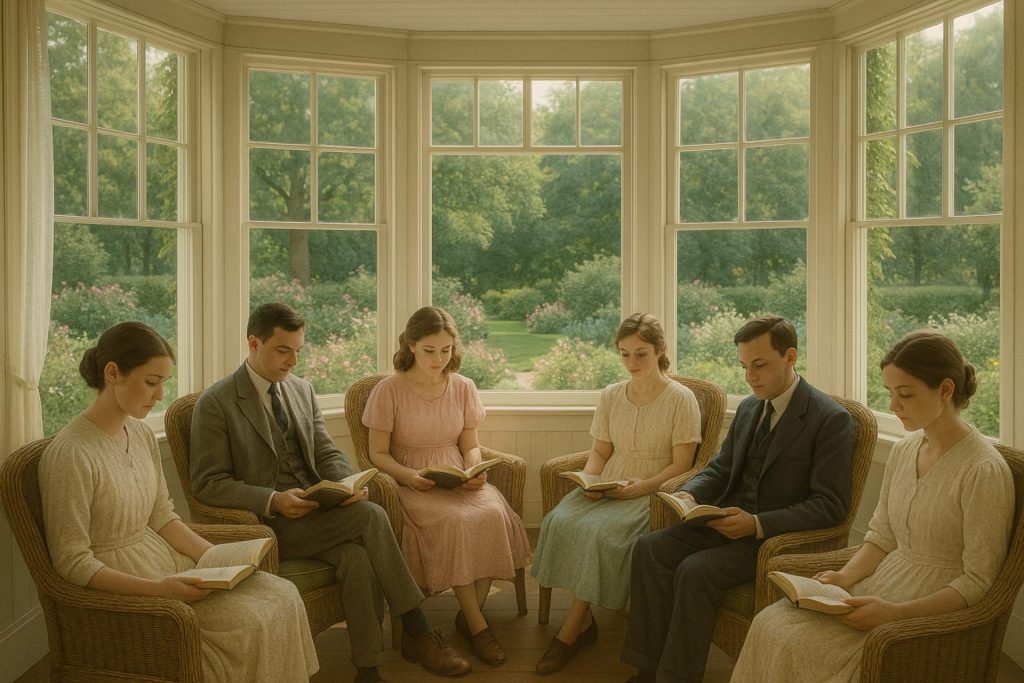
The first book club ever recorded dates back to 1012: a silent, collective, almost meditative reading. There were no discussions, no exchanges of opinion – just a shared experience in time and space. Today, more than a thousand years later, book clubs have become something entirely different: we read from afar, we meet in virtual spaces, we speak through screens. And yet, something endures at the core: the desire to read together, even when far apart.
In this issue of Chronicles of Healthcare and Narrative Medicine, we propose a small summer experiment: a book club like no other, built around a selection of narrative texts—short stories, brief novels, intimate tales – written by authors who all share one essential bond: they have completed the Master’s Program in Applied Narrative Medicine.
This is the only true closeness that underpins our club. The authors don’t all know each other personally; they live in different places and work in different settings. But they share a formative experience that ignited – or reignited – their passion for writing and reading. Some had published even before the program, while others began writing afterward. What they have in common is a narrative sensitivity that grew through classroom discussions, shared lessons, and informal dialogue.
What’s most striking is that these writers don’t just tell stories about healthcare, illness, or caregiving. Many of their texts intentionally stray from the medical world: they explore landscapes far from the city, childhood memories, love stories, everyday mysteries, and inner journeys. It’s a form of literature that shows how those who care for others can also be something else entirely: authors, storytellers, observers of the world. No longer (or not only) medical humanities—but full, free storytelling, capable of stepping away from the profession to narrate life in all its forms.
According to Mohammadreza Hojat, empathy among healthcare professionals increases in those who love art, music, and literature. This book club proves it: our authors, though they wear white coats, are also deeply expressive and creative individuals. For them, storytelling has become a parallel practice, a form of resistance, a way of inhabiting the world with a different gaze.
And what better time to read than August? As the sun enters the constellation of Leo and the heat slows down the body, the mind becomes more reflective. August is suspended time, ideal for immersing oneself in a story. That’s why, in this issue, we share only stories. No scientific papers, no essays. Just words to be read slowly.
And like in every innovative book club, silence is meant to be broken. If you’d like, write to us at aresanita@istud.it. Send us a free-form comment, a thought about a story that touched you, or let us know the name of an author you’d like to connect with. Or why not, share a new story of your own. Because this is a reading circle – one that can spark writing.
There are Alumni Clubs; this is our Book Club.
